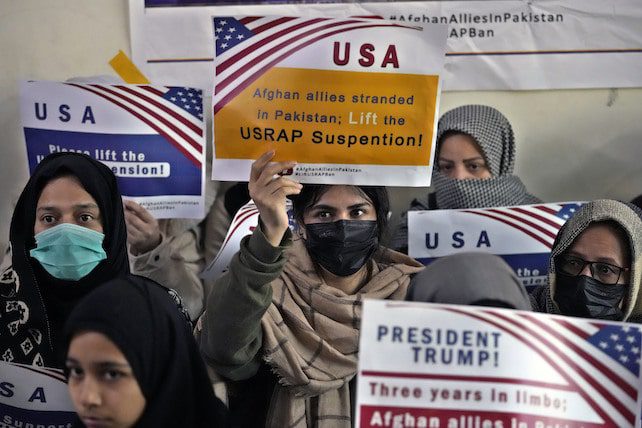Rice told the story of a judge in Afghanistan who had made decisions in favor of democracy and against the Taliban. Rice’s organization was able to sponsor the judge and his family and prove that they qualify as refugees in part because of how long they had been outside of Afghanistan.
“We could prove how they were in danger,” she said. “We had to explain how the Taliban was hunting them in their home country and why they were endangered. And so that was enough to create a case for them.”
“But as the private sponsor group, we had to identify them and ask for them to be given a refugee case,” she said. “They couldn’t apply themselves.”
Because of Trump’s executive orders, the cases of the judge and his family and other refugees like them is now paused indefinitely. And because foreign aid has been paused, there is no money to transport SIV applicants.
“The movement that the CARE department was doing to transport people from Afghanistan to the lily pad where they could do their interview—that has all stopped,” said Rice. “And also people who are already in Doha [in Qatar] or in Albania, whose cases hadn’t finished yet, who were in process, they’re stuck there.”
Rice’s group has a family that is “interview ready” but is stuck in Afghanistan. “Because of the foreign aid pause,” she said, “they cannot fly to Doha to do their interview.”
“On top of that,” she said, “if this travel ban goes into effect, even [in] SIV cases…no Afghans would be allowed to enter the U.S., no matter how well vetted they are.”
The Trump administration has also cut off all resettlement assistance to people coming into the U.S. What usually happens is that once people arrive in the United States, the government assists them for 90 days with finding a job and a place to live. But now any immigrants who want to resettle here have to do it by means of their own funds.
“The Afghans that I know are eager to integrate, to become self-sufficient, to pay back their flight loans,” Rice said. “They don’t want to be dependent on the state, but you need a solid beginning to help you get started and move into sustenance faster.”
Helping these refugees get on their feet after arriving in the U.S. “is actually good for our communities and for America,” said Rice. “The faster these folks are able to be contributing to their communities, the better that is for all of us.”

